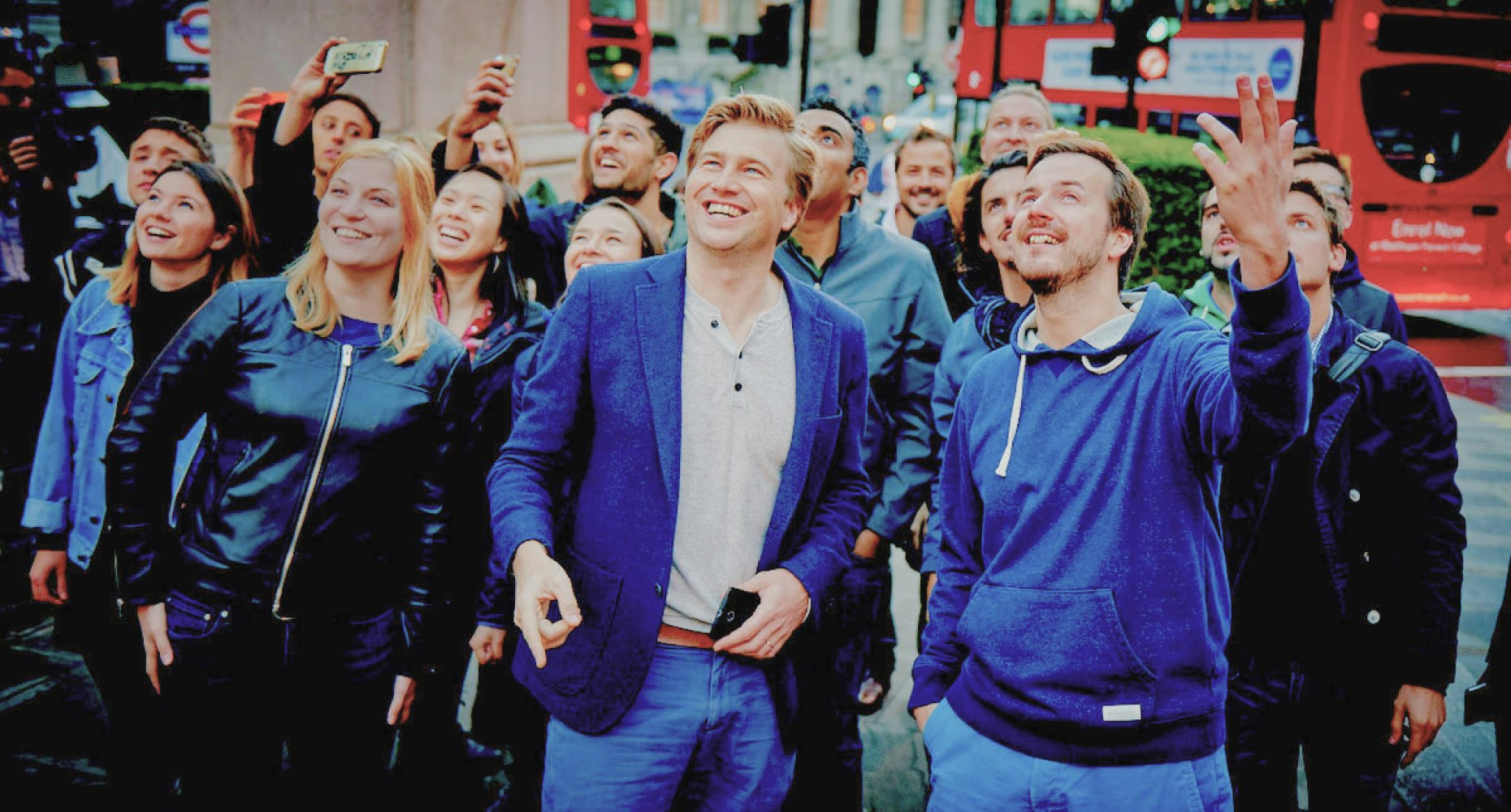The founder of fintech unicorn Payhawk, Hristo Borisov, never meant to speak up publicly about the messy political situation in his home country Bulgaria.
For the past four years, he’s been focused on raising investment ($236m so far), growing his team (now 150+ people), reaching unicorn status and helping build the Bulgarian startup ecosystem.
But when his company was dragged into a parliamentary debate over the future of the country's pro-tech government — in which the two main political parties were arguing which of them stands behind Payhawk's success — he felt like he had no choice but to speak up.
“[Startup founders] definitely should not have political opinions,” Borisov tells Sifted in an interview, a few weeks after taking to the streets with hundreds of other tech workers to support prime minister Kiril Petkov’s government as it faced a no-confidence vote. (He also gave all his employees a day off to demonstrate and express their views — whether they matched his own or not.)
“That being said, the biggest responsibility people like me have is to [fight] things that are really against the sector or against what we believe in. And we are given a massive speaker phone and we have to be very careful how we use it.”
Founders' reality
During the communist era, Bulgaria was known as the Silicon Valley of southeastern Europe — its engineers, for example, created a computer that at its peak made up 40% of machines used in the whole eastern bloc. This heritage has helped create a vibrant, skilled, 70k people strong IT community that is now outdoing itself by setting up startups, such as Payhawk, ready for international expansion.
But the growth of the sector has been slowed by an unfavourable political situation: for years, the country has been struggling with the highest level of corruption in the EU, a lack of judicial independence, pro-Russian attitudes and links between oligarchs and some politicians and local mafia.
Borisov experienced this big time when he launched Payhawk in 2018. In an emotional statement on Facebook, he described how his way to the top happened in spite of any government rather than thanks to it. He said that when he started fundraising he approached 60 investors who refused to invest in “a Bulgarian startup.”
Later, on the brink of running out of capital, another investor told him that he had to shift his company’s HQ to London. “Fifteen days before we went bankrupt in 2019 we managed to attract one of Europe's most successful investors, who politely explained to us that we had to transfer our property to London where laws were respected, otherwise they would not invest,” he says.
It then took the company eight months to open a bank account in London, because it came from Bulgaria.
He says his post describes the reality for Bulgarian founders who want to raise foreign capital. “If you don't trust the local legislation, if you don't trust the judicial system, that will be something that is a showstopper for foreign capital.
“I have been very pragmatic, not very emotional about it, because it is what it is,” he adds. “But I have one rule: you should never treat yourself as a victim.”
Fighting corruption
Petkov’s We Continue the Change party is made up of progressive, Western-oriented graduates from some of the world’s top universities, and some of them are active members of the startup world. It got to power on an anti-corruption and pro-Western agenda in December 2021, as part of a four-party coalition. It promised to give the country, and its entrepreneurs, a new, fresh start.
The party’s members have startup experience: Petkov’s company ProViotic holds several patents in biotechnology in the US; his deputy Asen Vasilev was cofounder of Everbeard, an airline ticketing company; and the minister of innovation and growth Daniel Lorer is the founder of a Sofia-based VC firm, BrightCap Ventures, and calls himself “a unicorn chaser".
In its short seven-month tenure, the government has been pushing to simplify the country’s stock options scheme and introduce visas for tech workers.
“We haven't heard the word ‘unicorn’ from any person in the parliament before this government,” says Borisov.
But the progressive agenda that appealed to young and successful entrepreneurs in Sofia didn’t go down so well with the more conservative and traditional parts of the population, or the party’s partners in the fragile coalition.
The main bones of contention were the government’s softened stance towards North Macedonia’s accession to the EU and its harsh stance on Russia after its invasion of Ukraine — which ended with the cutoff of Russian gas and expulsion of 70 Russian diplomats from Bulgaria.
In the June no-confidence vote, Petkov’s cabinet lost the support of its coalition partners and the prime minister officially resigned. Now, negotiations are ongoing to forge a new agreement between the parties — a process that could eventually end in another election.
For Borisov, there’s still hope that the more progressive side of Bulgarian politics will endure.
“I think that was the biggest realisation for prime minister Petkov — change is not going to be easy,” he says. He already sees more maturity in the party’s actions and narrative. “Initially, it was a little bit naive: we are going to go and just wipe out corruption.” Now, he says, the party realises that progress will require a generational change in the mentality of Bulgarian society. "They are a lot more sober on the real effort it’s going to take,” he adds.
It's like a startup, he says. “You go into a startup, you get slapped by the market, you go back to the drawing board, you pivot and then you go back with a new version. So now I'm expecting version 2.0 of that government.”



